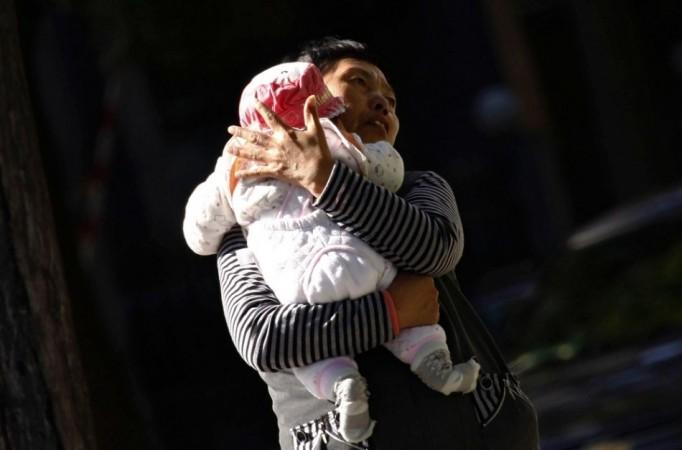
A bill that aims to ease China's strict one-child policy was tabled in the top legislature of the country on Monday.
The bill intends to allow couples to have two children if either of them is an only child, Chinese daily Xinhua reported. At present, China allows couples to have two children, only if both of them are an only child.
The National People's Congress which is holding its bi-monthly sessions now will debate over bringing the key changes in the one-child policy. Since November, the Communist Party of China has been increasingly raising the issue of the decline in population in China, which is a worrying sign.
The strict policy was first introduced in 1970 to control the surging population in the country. The policy limited most urban couples to just one child and rural couple to two children, if their first child was a girl. Further, the Chinese government used to provide bonuses and other rewards to one-child families.
China, for long now, has been worried as the birth rate in the country has remained low. The bill tabled on Monday highlighted the drop in the birth rate. The rate currently is pegged between "1.5 and 1.6 since the 1990s, which means one Chinese woman of childbearing age gives birth to 1.5 to 1.6 children on average," the daily reported.
"If China continues the current family planning policy, the birth rate would continue reducing and lead to a sharp drop in the total population after reaching the peak," said Li Bin, minister in charge of the National Health and Family Planning Commission, when elaborating the bill to lawmakers.
It is predicted that if China continues restriction on its birth rate, the working population of the country is likely to reduce by 8 million annually after 2023, according to the bill.
In support of passing the new reform, Li further stated that "it is the right time to do it as the low birth rate is stable, the working population is still large and the burden to support the elderly is relatively light."
The amendments in the bill is expected to be made based on its approval from provincial people's congresses and their standing committees, who will have to carefully evaluate the local demographic situations and the risks of policy changes.

















